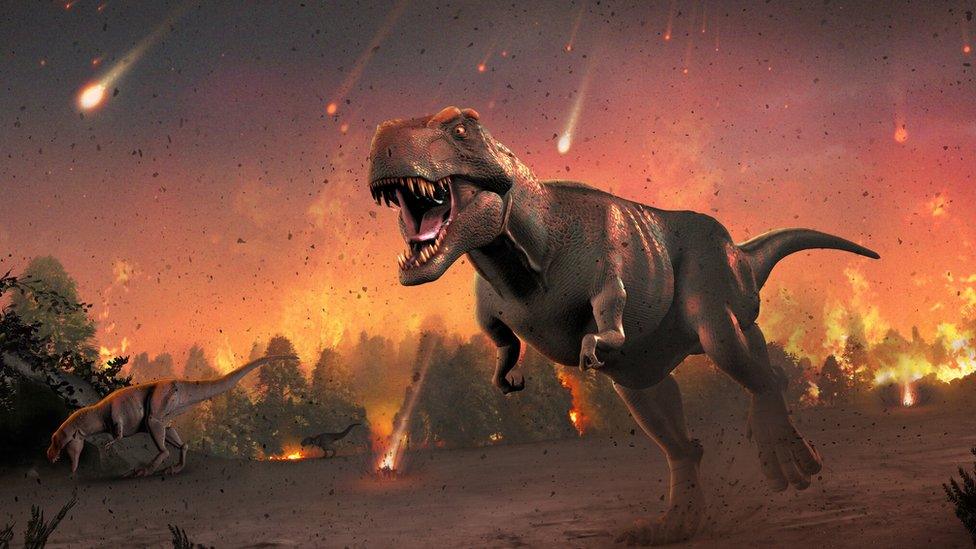New evidence proves North Sea asteroid impact
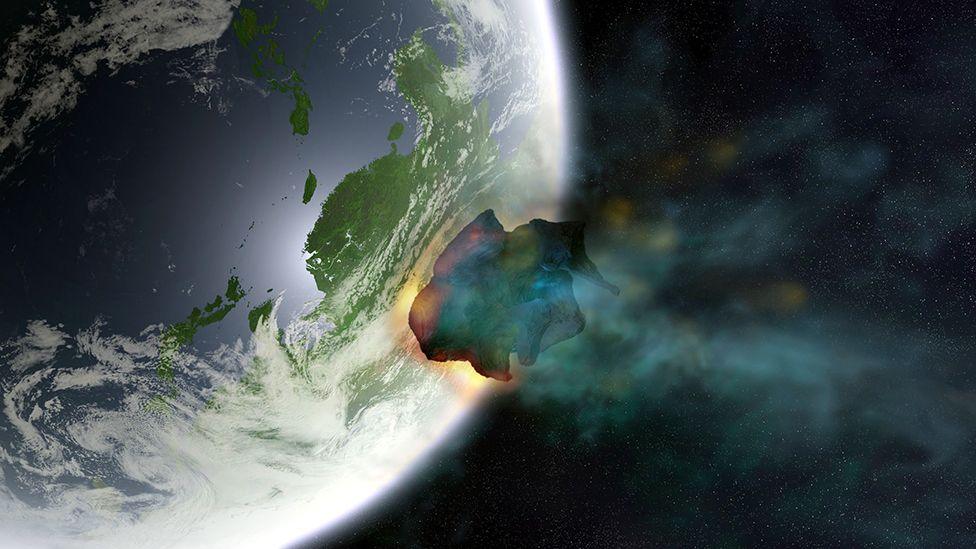
The impact of the North Sea asteroid caused a 328ft (100m) high tsunami of water, geologists said
- Published
Scientists have found proof that an asteroid hit the North Sea more than 43 million years ago causing a huge tsunami and leaving a 1.9 mile (3km) wide crater under the seabed.
The Silverpit Crater is around 80 miles (128 km) off the East Yorkshire coast and was discovered in 2002.
Since then geologists have disagreed over how it was formed with some claiming it was caused by the movement of salt rock or the collapse of the seabed because of volcanic activity.
Now a new study using seismic imaging and analysing rock samples indicates it was caused by a 535ft (160m) wide asteroid crashing into the Earth.
Dr Uisdean Nicholson, associate professor at Edinburgh's Heriot-Watt University, said new technology had helped to solve the mystery of the crater's origins.
He said the research team, funded by the Natural Environment Research Council, had recovered rare "shocked" quartz samples which settled the argument.
"We were exceptionally lucky to find these, a real needle-in-a-haystack effort," he said.
"These prove the impact crater hypothesis beyond doubt, because they have a fabric that can only be created by extreme shock pressures."
Dr Nicholson said the impact would have caused a 328ft (100m) high tsunami of water.
The crater lies under the current seabed and is not visible, so scanning equipment, which Dr Nicholson described as "like ultrasound for the earth", was used to map it.
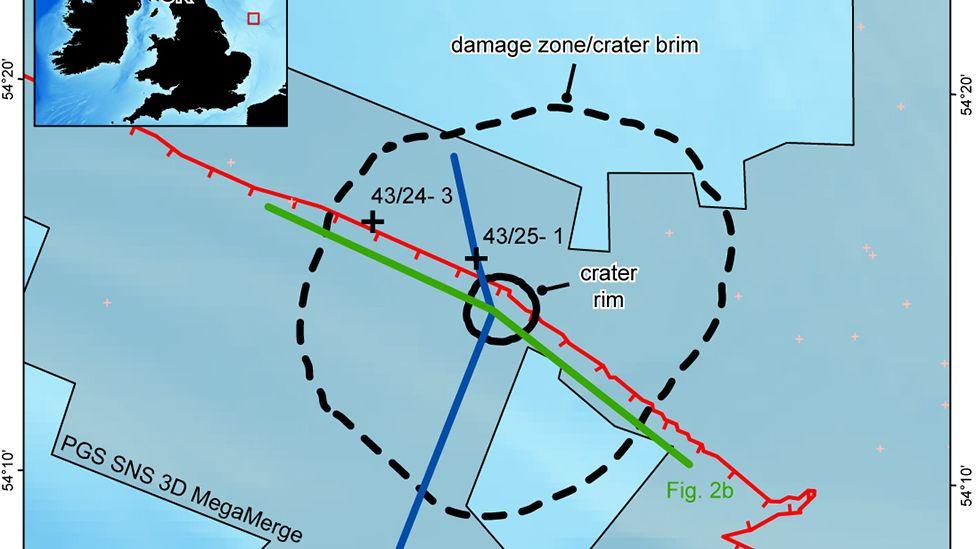
The Silverpit Crater is located around 80 miles (128 km) off the East Yorkshire coast
The professor said such craters were very rare with "around 200 confirmed impact craters exist on land and only about 33 have been identified beneath the ocean".
Other sites include the Chicxulub Crater in Mexico caused by an asteroid impact 66 million years ago that is believed to have led to the extinction of the dinosaurs.
"We can use these findings to understand how asteroid impacts shaped our planet throughout history," Dr Nicholson said.
"As well as predict what could happen should we have an asteroid collision in future."
Listen to highlights from Hull and East Yorkshire on BBC Sounds, watch the latest episode of Look North or tell us about a story you think we should be covering here, external.
Download the BBC News app from the App Store, external for iPhone and iPad or Google Play, external for Android devices
Related topics
- Published3 February
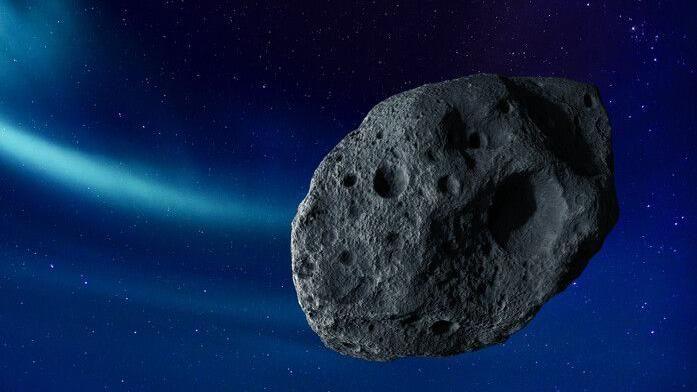
- Published17 August 2022
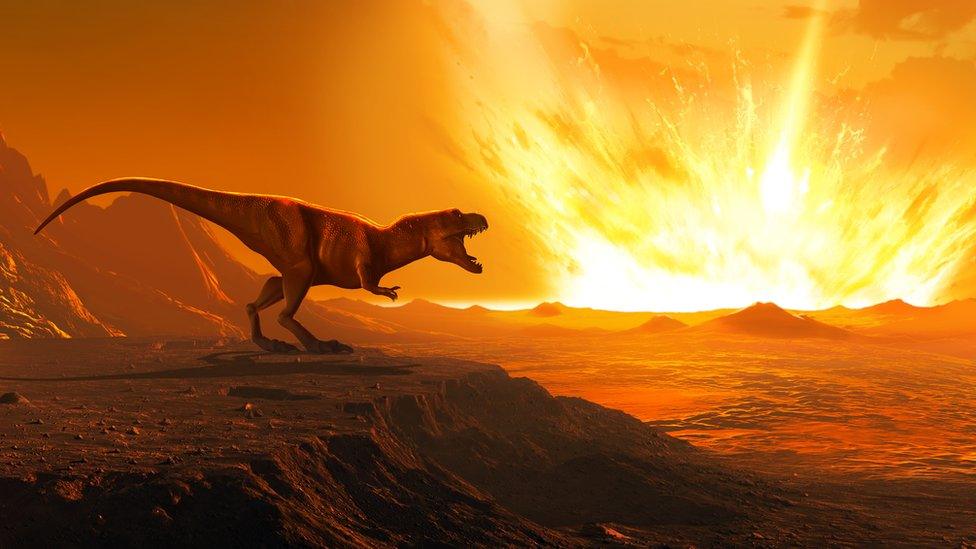
- Published3 October 2024
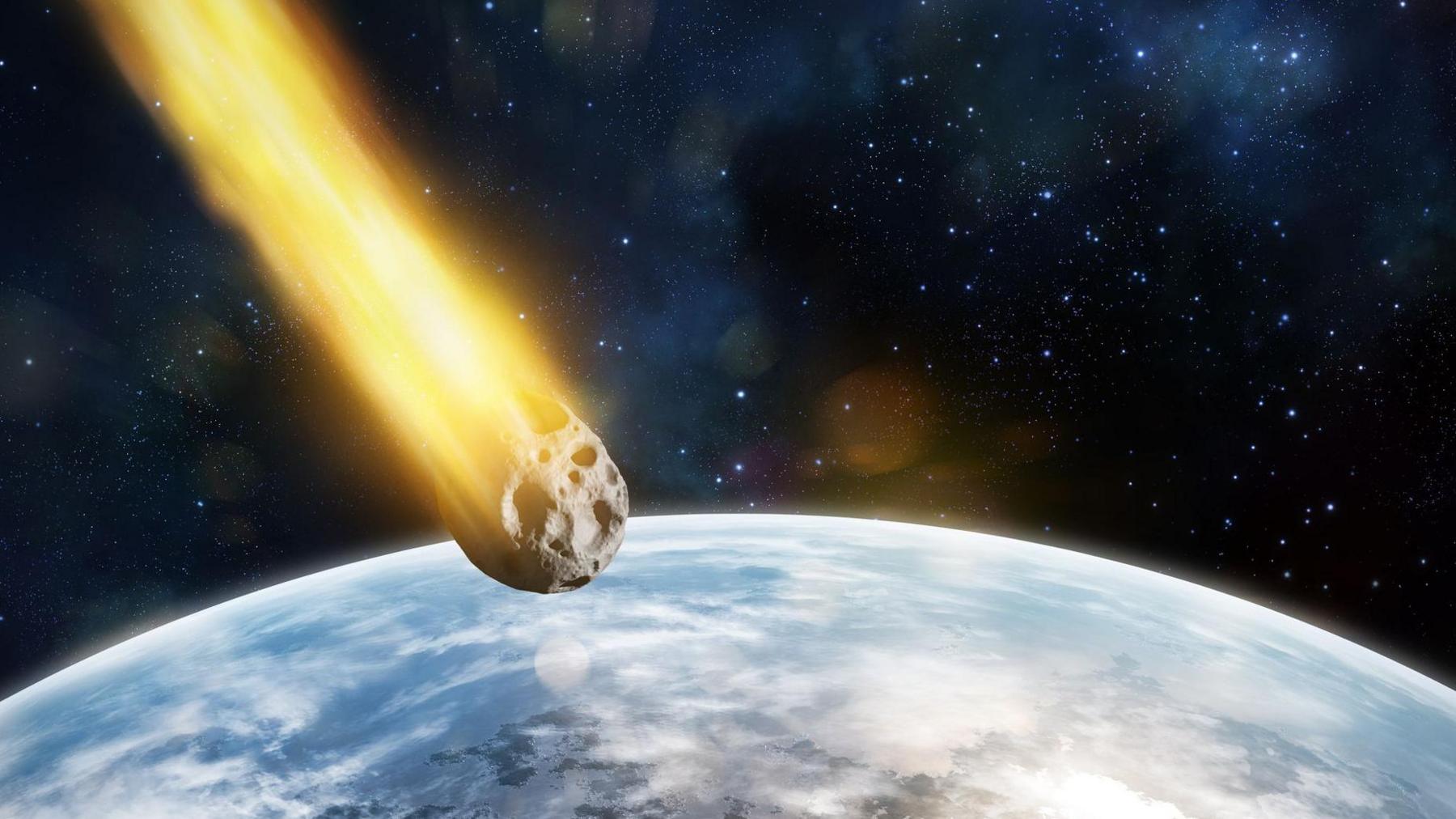
- Published17 January 2020
